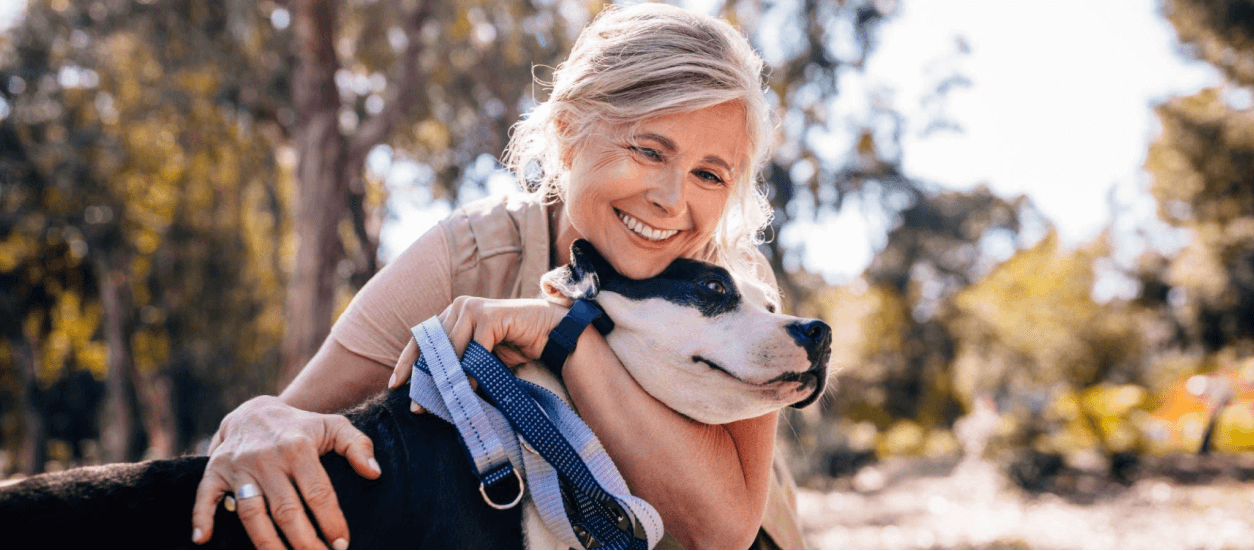Owning a Psychiatric Service Dog (PSD) comes with plenty of advantages! Go to the shops, take trips, or just hang out – having your PSD along can make it all more enjoyable and calming. Remember that you have certain rights regarding taking them places and be sure to stand up for yourself if any challenges arise. If managed right, being with your beloved four-legged companion should reduce stress levels rather than spiking them higher!
Knowing Your Rights:
When you have a service dog, it’s important to understand that the ADA and other government organizations recognize your rights–just like they would any human! You should know these rights by heart — not just for yourself but also as protection in case of difficult situations. And if ever you’re wondering where it’s okay to take Fido out with you, make sure to do some research on which places allow PSDs before heading out – knowledge can be power after all!
Reasonable Accommodations
Service dogs are more than just furry friends – they’re real-life superheroes! Offering effective and compassionate support, these special pups have been deemed as “reasonable accommodations” for people with disabilities. This means that all public places must now welcome them in; restaurants, food areas, buffets- you name it. If the location is accessible to their owner then it’s an open-door policy for service pets too!
Fees and Deposits
For people with disabilities, service animals are as essential to life and liberty as any other right. That’s why hotels, landlords, and homeowners’ associations must provide access without charging extra fees or discriminating against specific breeds of PSDs – Protecting Service Dogs! They cannot be separated from the person using them nor can they pay more than others for their presence. And here’s a tip: If you’re required to make a pet deposit at businesses like hotels or Airbnb locations across America – don’t worry about it if your pup happens to be one of these amazing working dogs authorized by law. Those deposits should always be waived in good faith.
Displaying Your Pet’s Tasks
Having a task-trained service dog can be incredibly helpful, but it’s important to remember that demonstrating the exact services your pup provides won’t always be necessary. Even though each of these dogs is individually trained for their needs and disability, having them perform in public may cause them to forget! In most cases you’ll just need to explain what lovable Rover here does for you—so no pressure on putting on an extra show when out and about with man’s best friend.
Displaying Your Disability
It is illegal for somebody to expect you to tell them that. All they can ask are the following two questions:
Is the animal a Service Dog required for a disability?
What work or task has the dog been trained to perform?
While they can require an answer to the questions, they can not make you or your pet perform or display for them.

Knowing Your Responsibilities:
Be Polite
When it’s time to take your service pup out in public, be prepared for some attention! People may not always understand the rights that both you and your furry pal have – whether they’re concerned about their experience or customers’ experiences being disrupted by Fido here, or excitedly curious as to what role he plays. You must do all within reason to respect everyone else while also protecting yourself and your pooch’s rights. This means making sure any interactions with others don’t become overly disruptive, so every party involved can enjoy themselves properly.
Keep Training
The goal of any responsible pet parent is to make sure their pup knows proper manners while out in the world. If your canine companion happens to display signs of aggression, take swift action – it’s imperative! Showing you have control over Fido by swiftly responding whenever they bark or pulls on a leash means better access for both you and them. Plus, one single bark isn’t likely going cut it when accessing public places – but that doesn’t mean having an obedient pooch can’t be achieved with understanding and patience!
As a PSD handler, it is up to you to make certain your pup has the skills they need when meeting new people. Don’t break the bank on professional training – with just a few tools and some practice, you can easily sharpen those ever-important socialization abilities right in your home!
Make sure your pet is identifiable as a service animal
Get appropriate identification for your service animal. In the United States, this typically means getting a vest or harness that identifies your animal as a service animal. You may also want to consider getting a certification card or other documentation that verifies your animal’s status as a service animal.
Be Prepared for Questions
Even the most well-behaved dog can sometimes draw some unwanted attention. But whatever questions are thrown your way, it’s important to be prepared with a polite response – no matter how inappropriate the question may seem! When conversing in public, remember that you’re not obligated to disclose any protected information about disabilities or other sensitive subjects.
Know Your Rights
No matter the context, it’s important to remember that while you shouldn’t be discriminated against because of a disability, no one can force you to disclose information about any aspect of your health. It is illegal in many cases for someone like an employer or landlord to inquire into your medical history – if they do ask whether you have a disability during these types of situations simply pointing out their question crosses legal boundaries and ends there. When interacting with people outside those contexts though, such as friends and family members who are curious but don’t know better – how much (or little!) detail about disabilities that somebody shares are ultimately up to them! They may choose to use it as an opportunity to educate others on what having said condition means for them…But just politely declining could also work wonders when saving everyone involved from awkward conversations!
Preparing for Travel
When venturing out with your four-legged friend, it’s important to remember they must be a trained service animal for them to accompany you. Airlines are extra cautious when verifying that dogs meet the required qualifications as well as legal rights of access and protection. To ensure both yourself and your pet understand any questions posed by security or airline staff, practice responding with definitive answers about their specific training skills so there is no confusion between an ESA – eligible for some protections but not a recognized PSD (or Psychiatric Service Dog) –and one which has been specifically educated and proper certified!
Overall, it’s important to plan and communicate with the airline to ensure a smooth and stress-free travel experience for you and your service animal.
Service animals typically sit on the floor space in front of the passenger’s seat on a plane. This space is commonly referred to as the “foot space” or “under-seat area.”
It’s important to note that airlines have different policies and requirements for accommodating service animals, so it’s a good idea to check with your airline before your flight to ensure that you are aware of their specific policies and any documentation or certification requirements.

Trying to bring your service dog into a public area but being denied entry?
It’s important to stay cool, calm, and respectful in these situations – no matter how hard it may be. Make sure you document the interaction from start to finish with photos or video if possible. Start by calmly explaining that you are legally allowed access with your pup pal. If they still don’t budge, ask for a supervisor or contact the owner of the premise directly. Also call either ADA Information Line at 1 800 514 0301 (voice) 01 800 514 0383 (TTY), where trained staff can offer helpful advice on what steps should come next! Should all else fail getting the police involved could help de-escalate the situation too as their team is experienced when dealing with accessibility issues like this one!
If your pup can provide much-needed comfort, detect a seizure before it strikes, or even grab some medicine in an emergency – you’ve got yourself one of the most serviceable dogs around! With their special abilities and training, these pups are worth their weight in gold when it comes to helping those with disabilities.
If people want to know why your pup is special, it’s always helpful to provide specific examples of how they aid you (only if comfortable to do so)! For example, are they certified medical alert animals for allergies or seizures? Or perhaps an emotional support companion who calms and helps you in public settings. Being detailed about the abilities of your service dog will help convey that their training isn’t just empty claims – so think twice before going generic with responses!
Conclusion:
Life with a Psychiatric Service Dog should be an empowering experience; every outing is another opportunity for growth. Educating yourself on the rights and expectations of public spaces will help ensure smoother interactions while out, providing you and your PSD maximum comfort to take advantage of each moment together – without any stress or worry getting in the way! Whether it’s grocery shopping trips, hikes outdoors, or even just day-to-day errands, being prepared allows all involved inhabitants (two-legged AND four) to remain safe, happy & comfortable during their time spent together enjoying life’s daily moments.
For further information on how to properly train your PSD, visit our online training platform by clicking here.



